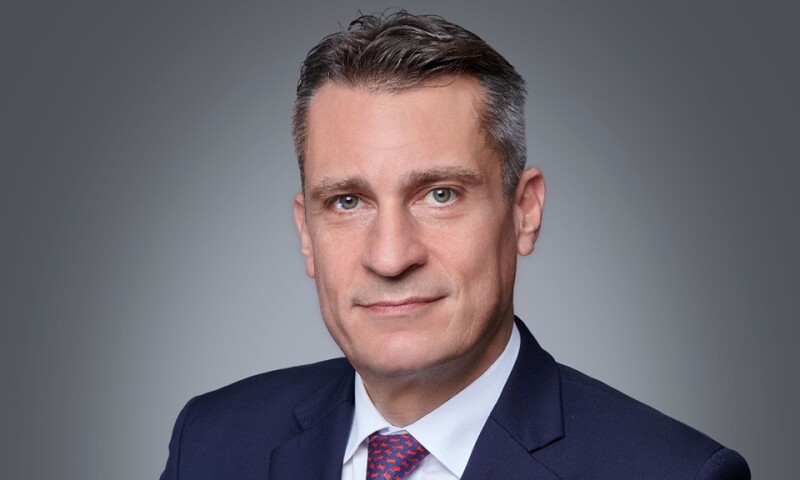
Any Australian banking veteran will tell you the country is overbanked. You have the big four commercial names, the hard-to-define powerhouse that is Macquarie, every large international investment bank and a growing crop of boutiques.
That competitive environment hasn’t stopped three international houses taking or increasing their stakes in Australian enterprises in the space of a couple of weeks.
On Thursday, Lombard Odier became the latest to act upon the allure of the Great Southern Land, announcing a strategic alliance with JBWere.
It has been striking through Euromoney’s awards period this year how many Asia pitches have referred to expertise in Australia in a way that they simply never used to
This is not entirely new ground: the two houses – a pure-play Swiss private banking grandee and the most lionized of Australian wealth specialists – have had a partnership since 2011. Now formalized, it involves a commitment for the Swiss house to give JBWere clients access to Lombard Odier’s investment solutions, while the Australian’s local presence will help Lombard Odier grow in Asia Pacific.
But it speaks to a growing desire for distant houses to build strength in Australia. Nine days earlier, Barclays increased its shareholding in Barrenjoey Capital Partners from 9.9% to 18.2% through an A$75 million ($53.5 million) subscription of new capital. And three days after that, Nomura announced a slightly different deal: an agreement to acquire 41% of New Forests, a forestry-asset management company in Australia.
All three deals have their own particular sub-plots.

Full service
Barrenjoey is the talk of Australia, founded by co-chairs Guy Fowler and Matthew Grounds, both previously among the most senior figures at UBS; no more than a blank sheet of paper two years ago, it has moved with considerable pace to become a full-service house.
The Barclays increase should in part be seen as a natural cementing of an important relationship: Barclays is not only a shareholder but has a formal cooperation agreement with Barrenjoey, through which the UK house offers global distribution across equities and fixed income, among other things, to the Australian.
It should also be seen in the context of the waning fortunes of large shareholder Magellan, once considered one of the greatest of homegrown Australian fund managers, but one that has suffered a collapse of its share price, weak performance, the departure of an important client (with its funds) and eventually an indefinite leave of absence of Magellan co-founder Hamish Douglass, who had championed the Barrenjoey deal.
New Magellan chairman Hamish McLennan has denied it wants to offload its shareholder, but it’s not a surprise that if new capital was required, Barclays rather than Magellan was the one to supply it.
Clever play
The Nomura deal is different again, a clever play on alternative assets and climate transition. New Forests, the world’s second-largest unlisted forestry-asset management company, has 1.1 million hectares under investment and is expected to play a key role in the provision of carbon credits.
Australia is among the world leaders in this asset class: the sovereign wealth vehicle, the Future Fund, has had professionals dedicated to forestry, and a corresponding allocation, ever since its foundation.

And the Lombard/Were deal is about taking an informal situation and hanging a sign on it because it’s clearly working.
Lombard Odier CEO for Asia, Vincent Magnenat, speaks of wanting “an ecosystem of strategic alliances in Asia Pacific”, and Were is as good a name as one can hope for: a legacy going back to 1840, a long-time partner with Goldman Sachs from 2003 until NAB took the last chunk of the Goldman stake in 2006.
Wealth businesses, including NAB’s, were tarnished badly by the Banking Royal Commission set up in 2017, but that’s an opportunity for Lombard to take a long-term view of a relationship with a proven name.
So they’re all different. But they all speak to a common enthusiasm.
Changing attitudes
It has been striking through Euromoney’s awards period this year how many Asia pitches have referred to expertise in Australia in a way that they simply never used to.
UBS has always emphasized the country, but today Australia is also a proud position of strength for Goldman Sachs, and turns up heavily in any conversation with Morgan Stanley, JPMorgan, Credit Suisse, Citi, BNP Paribas and others.
The market has just been on fire, sometimes with equity capital markets activity, and increasingly with very substantial cross-border M&A. It might be overbanked – Jarden and Jefferies have joined Barrenjoey in rapid expansion – but there is a huge amount of work to be done and the fees are decent.
Australia’s recent general election turned chiefly upon changing attitudes to climate. We have reported before how Australia’s turbocharged superannuation sector has been a driver of this change; policymakers, if anything, were way behind investors and corporates in trying to make climate-related change important, and there is a mountain of work for banks to do in making it happen.
Macquarie is already probably the pre-eminent player in renewables and transition infrastructure, not just in Australia, but worldwide.
So there are good reasons to be in Sydney and Melbourne – and Pilbara lithium mines and Victorian wind farms and Queensland pastoral land – as the resource-blessed country bounces back hard from a protracted and distancing pandemic isolation.
Bankers will have to fight hard for business. But there’s plenty there to fight for.
